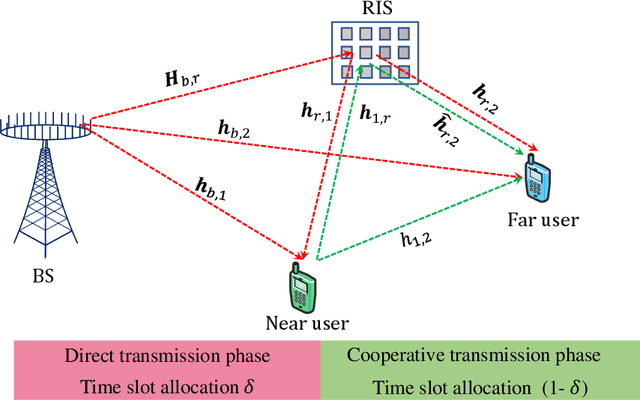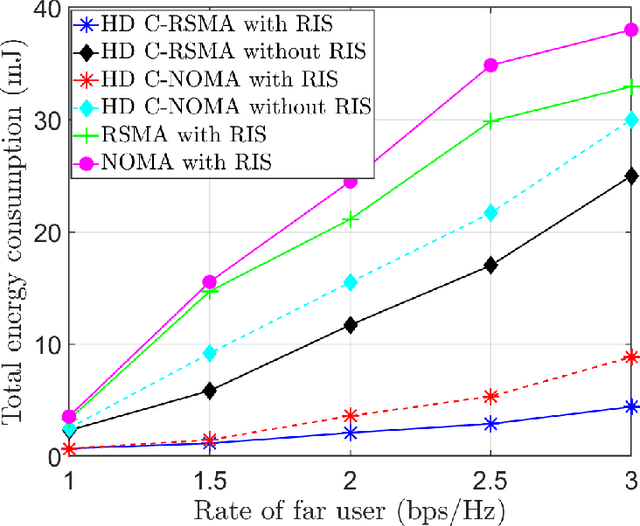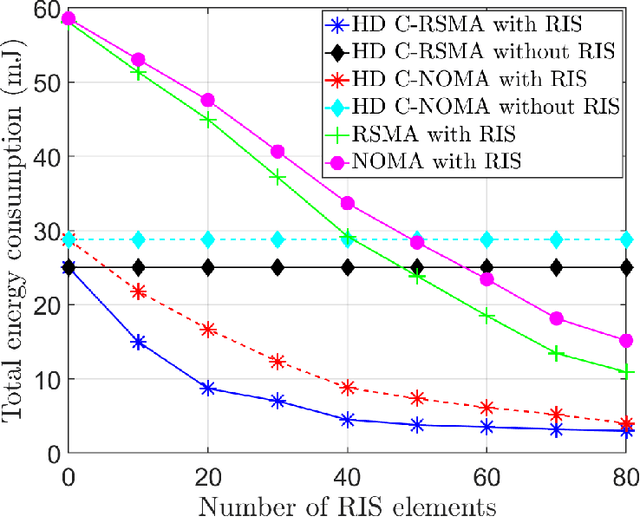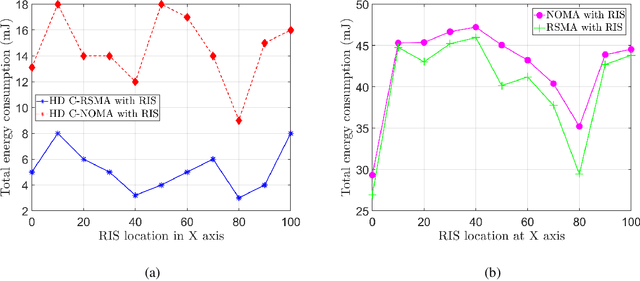Energy Consumption Optimization in RIS-Assisted Cooperative RSMA Cellular Networks
Paper and Code
Aug 13, 2022



This paper presents a downlink reconfigurable intelligent surface (RIS)-assisted half-duplex (HD) cooperative rate splitting multiple access (C-RSMA) networks. The proposed system model is built up considering one base station (BS), one RIS, and two users. With the goal of minimizing the network energy consumption, a joint framework to optimize the precoding vectors at the BS, common stream split, relaying device transmit power, the time slot allocation, and the passive beamforming at the RIS subject to the power budget constraints at both the BS and the relaying node, the quality of service (QoS) constraints at both users, and common stream rate constraint is proposed. The formulated problem is a non-convex optimization problem due to the high coupling among the optimization variables. To tackle this challenge, an efficient algorithm is presented by invoking the alternating optimization technique, which decomposes the original problem into two sub-problems; namely, sub-problem-1 and sub-problem-2, which are alternatively solved. Specifically, sub-problem-1 is to jointly optimize the precoding vectors, common stream split, and relaying device power. Meanwhile, sub-problem-2 is to optimize the phase shift matrix at the RIS. In order to solve sub-problem-1, an efficient low-complexity solution based on the successive convex approximation (SCA) is proposed. Meanwhile, and with the aid of difference-of-convex rank-one representation and the SCA approach, an efficient solution for the phase shift matrix at the RIS is obtained. The simulation results demonstrate that the proposed RIS-assisted HD C-RSMA achieves a significant gain in minimizing the total energy consumption compared to the RIS-assisted RSMA scheme, RIS-assisted HD cooperative non-orthogonal multiple access (C-NOMA), RIS-assisted NOMA, HD C-RSMA without RIS, and HD C-NOMA without RIS.
 Add to Chrome
Add to Chrome Add to Firefox
Add to Firefox Add to Edge
Add to Edge